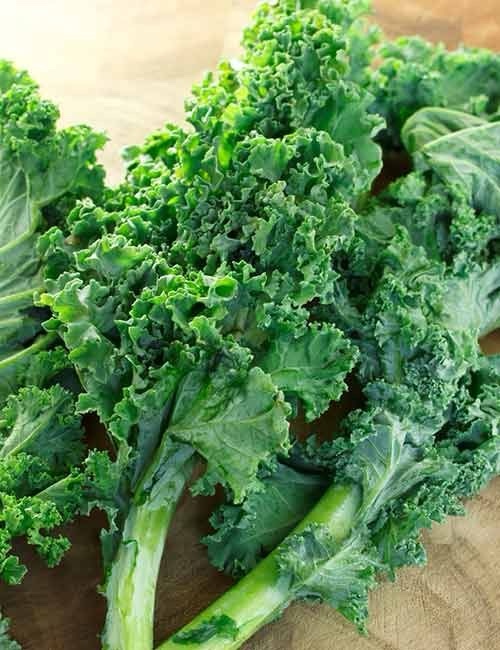Calcium is a vital mineral that plays a critical role in maintaining strong bones and teeth, supporting muscle function, nerve signaling, and heart health. Despite its importance, many people don’t get enough calcium in their diets, leading to health issues such as osteoporosis and increased fracture risk. Fortunately, there are plenty of delicious and nutritious foods rich in calcium that can help you meet your daily needs. Here are the five best foods to boost your calcium levels.
1. Dairy Products
Milk
Milk is one of the most well-known and readily available sources of calcium. An 8-ounce glass of milk contains about 300 mg of calcium, which is roughly 30% of the daily recommended intake for most adults. Milk is also fortified with vitamin D, which is essential for calcium absorption. Whether you prefer whole, skim, or low-fat milk, incorporating it into your diet is a simple and effective way to boost your calcium intake.

Cheese
Cheese, another dairy staple, is an excellent source of calcium. Different types of cheese contain varying amounts of calcium, but on average, a 1-ounce serving of cheddar cheese provides about 200 mg of calcium. Cheese also offers protein and fat, making it a satisfying addition to meals and snacks. However, it’s important to consume cheese in moderation due to its high saturated fat and sodium content.

Yogurt
Yogurt is a versatile and nutritious dairy product that can significantly contribute to your calcium intake. A single cup of plain, low-fat yogurt typically contains around 400 mg of calcium. Greek yogurt, known for its higher protein content, also offers a substantial amount of calcium. Additionally, yogurt contains probiotics, which are beneficial for digestive health.

2. Leafy Green Vegetables
Kale
Kale is a leafy green vegetable packed with nutrients, including calcium. One cup of cooked kale provides about 177 mg of calcium. Kale is also rich in vitamins A, C, and K, as well as antioxidants that promote overall health. Whether you enjoy it in salads, smoothies, or as a cooked side dish, kale is a fantastic way to increase your calcium intake.

Spinach
Spinach is another leafy green that offers a good amount of calcium, with one cup of cooked spinach containing around 245 mg. Spinach is also a great source of iron, magnesium, and vitamins A and K. Although spinach contains oxalates, which can inhibit calcium absorption, it is still a valuable addition to a calcium-rich diet when consumed in combination with other calcium sources.
3. Fortified Foods
Fortified Plant Milks
For those who are lactose intolerant or prefer plant-based diets, fortified plant milks are an excellent alternative to dairy. Options such as almond, soy, and oat milk are often fortified with calcium and vitamin D. A cup of fortified almond milk, for example, can provide around 450 mg of calcium, making it a strong contender for meeting your daily requirements.

Fortified Cereals
Many breakfast cereals are fortified with essential vitamins and minerals, including calcium. Depending on the brand and type, a serving of fortified cereal can contain up to 1,000 mg of calcium. Pairing fortified cereal with fortified plant milk or dairy milk can further enhance your calcium intake, making breakfast a powerful meal for bone health.
4. Fish and Seafood
Sardines
Sardines, particularly when consumed with their bones, are an exceptional source of calcium. A 3.75-ounce can of sardines contains approximately 325 mg of calcium. These small fish are also rich in omega-3 fatty acids, which support heart and brain health, and vitamin D, which aids in calcium absorption. Sardines can be enjoyed on their own, added to salads, or incorporated into pasta dishes.

Salmon
Salmon, especially when canned with bones, is another fish that provides a substantial amount of calcium. A 3-ounce serving of canned salmon with bones offers about 180 mg of calcium. Salmon is also an excellent source of protein, omega-3 fatty acids, and vitamin D. Including salmon in your diet can benefit your bones, heart, and overall health.
5. Nuts and Seeds
Almonds
Almonds are a tasty and convenient snack that can help boost your calcium levels. One ounce (about 23 almonds) contains around 76 mg of calcium. Almonds are also rich in healthy fats, protein, fiber, and vitamin E. Enjoy them on their own, as almond butter, or sprinkled over yogurt and salads for a nutritious crunch.

Chia Seeds
Chia seeds are tiny nutritional powerhouses packed with calcium. Just two tablespoons of chia seeds provide approximately 179 mg of calcium. These seeds are also high in omega-3 fatty acids, fiber, and protein. Chia seeds can be easily added to smoothies, yogurt, oatmeal, and baked goods, or used to make chia pudding for a calcium-rich treat.
Maximizing Calcium Absorption
While consuming calcium-rich foods is essential, it’s also important to optimize calcium absorption. Here are some tips to help your body make the most of the calcium you consume:
Pair with Vitamin D
Vitamin D enhances calcium absorption in the intestines. Ensure you get enough vitamin D by spending time in the sunlight, consuming fortified foods, or taking supplements if necessary.
Limit High-Oxalate Foods
Oxalates, found in foods like spinach, beet greens, and rhubarb, can bind to calcium and inhibit its absorption. While these foods are healthy, it’s best to consume them in moderation and alongside other calcium sources.
Balance Your Diet
A well-balanced diet that includes a variety of foods will help you get the nutrients you need for optimal calcium absorption and overall health. Avoid excessive amounts of salt and caffeine, which can interfere with calcium retention.
Stay Hydrated
Adequate hydration supports overall health and can help maintain the balance of calcium in your body. Aim to drink plenty of water throughout the day.
Conclusion
Getting enough calcium is essential for maintaining strong bones and overall health. Incorporating a variety of calcium-rich foods into your diet, such as dairy products, leafy green vegetables, fortified foods, fish, and nuts and seeds, can help you meet your daily calcium needs. Pair these foods with vitamin D and maintain a balanced diet to enhance calcium absorption and support your body’s vital functions. With these delicious and nutritious options, boosting your calcium levels can be simple, enjoyable, and highly beneficial for your health.